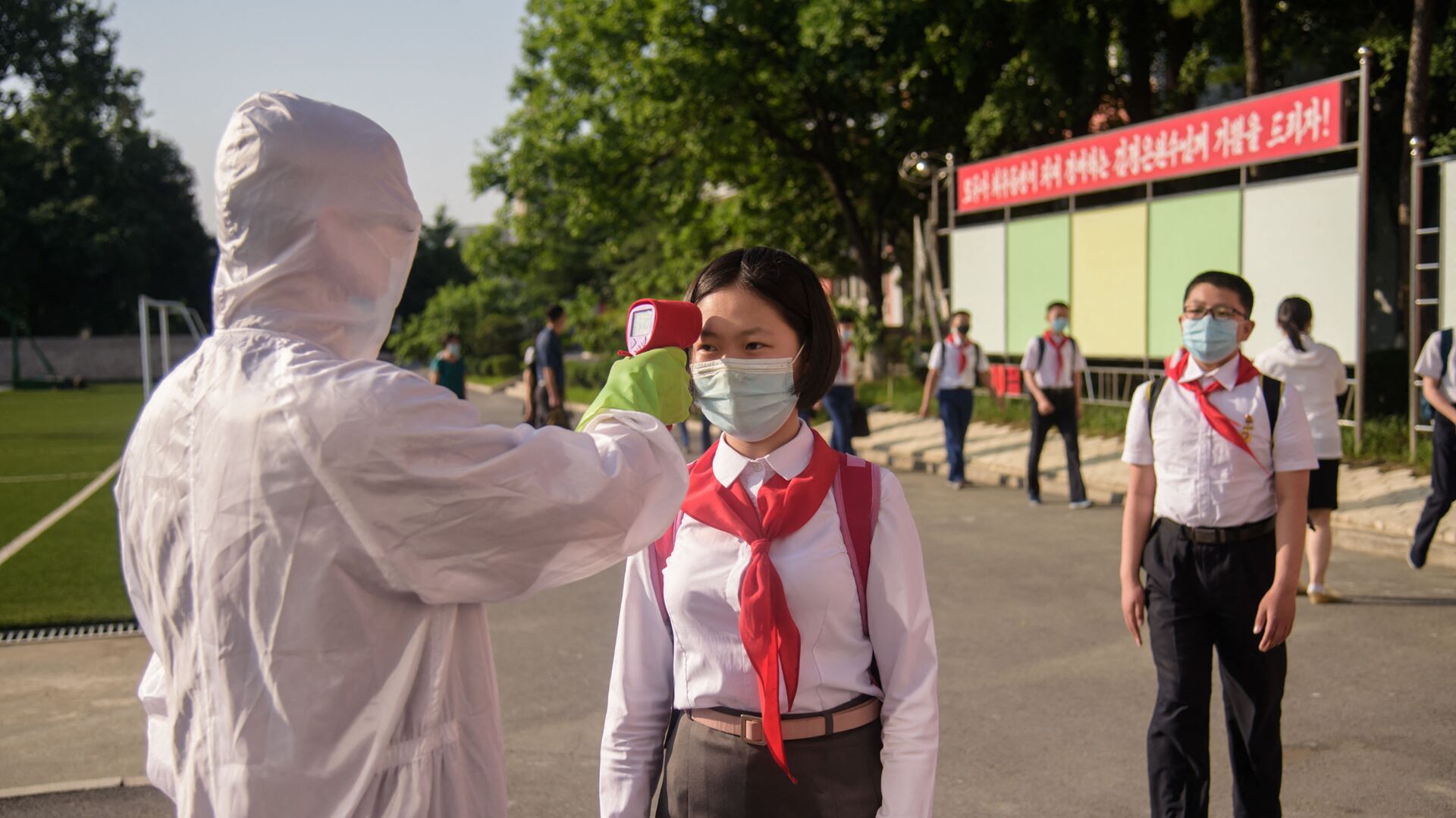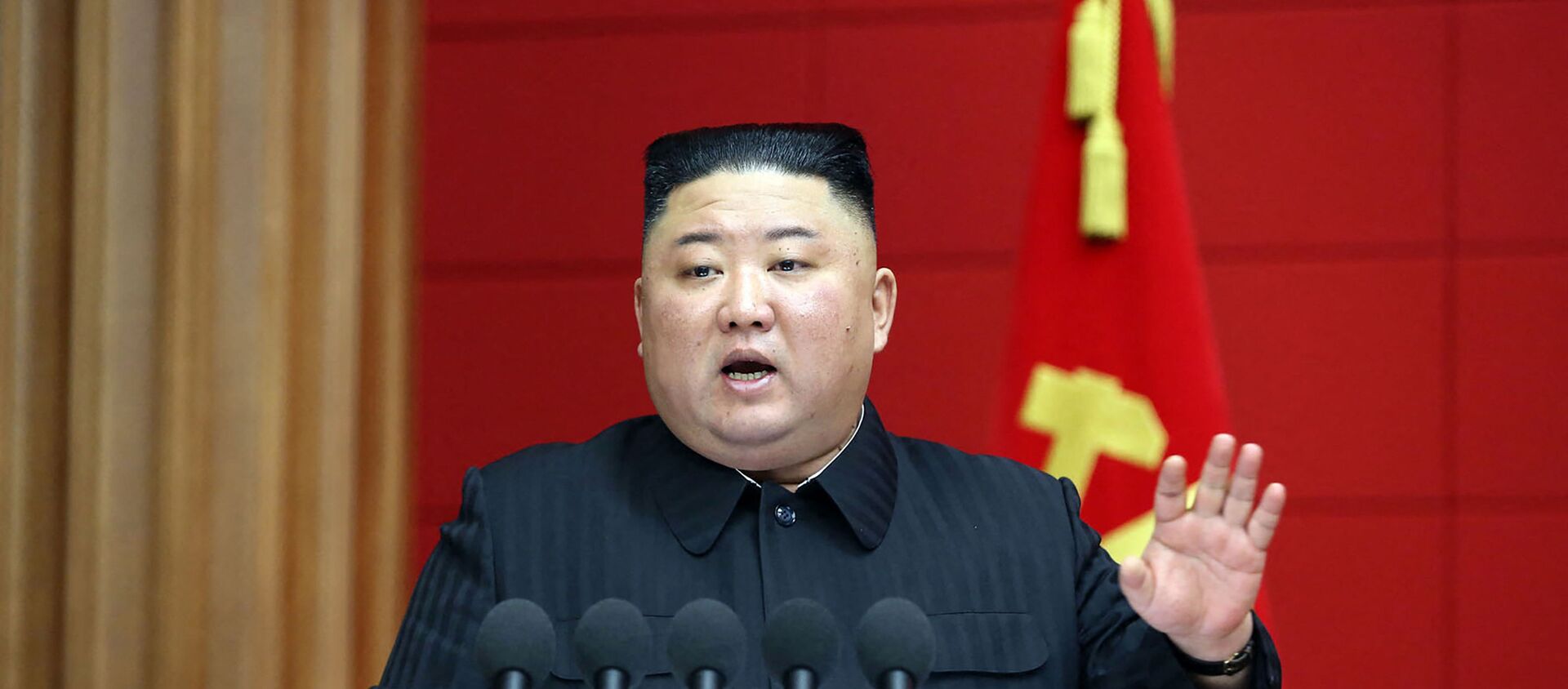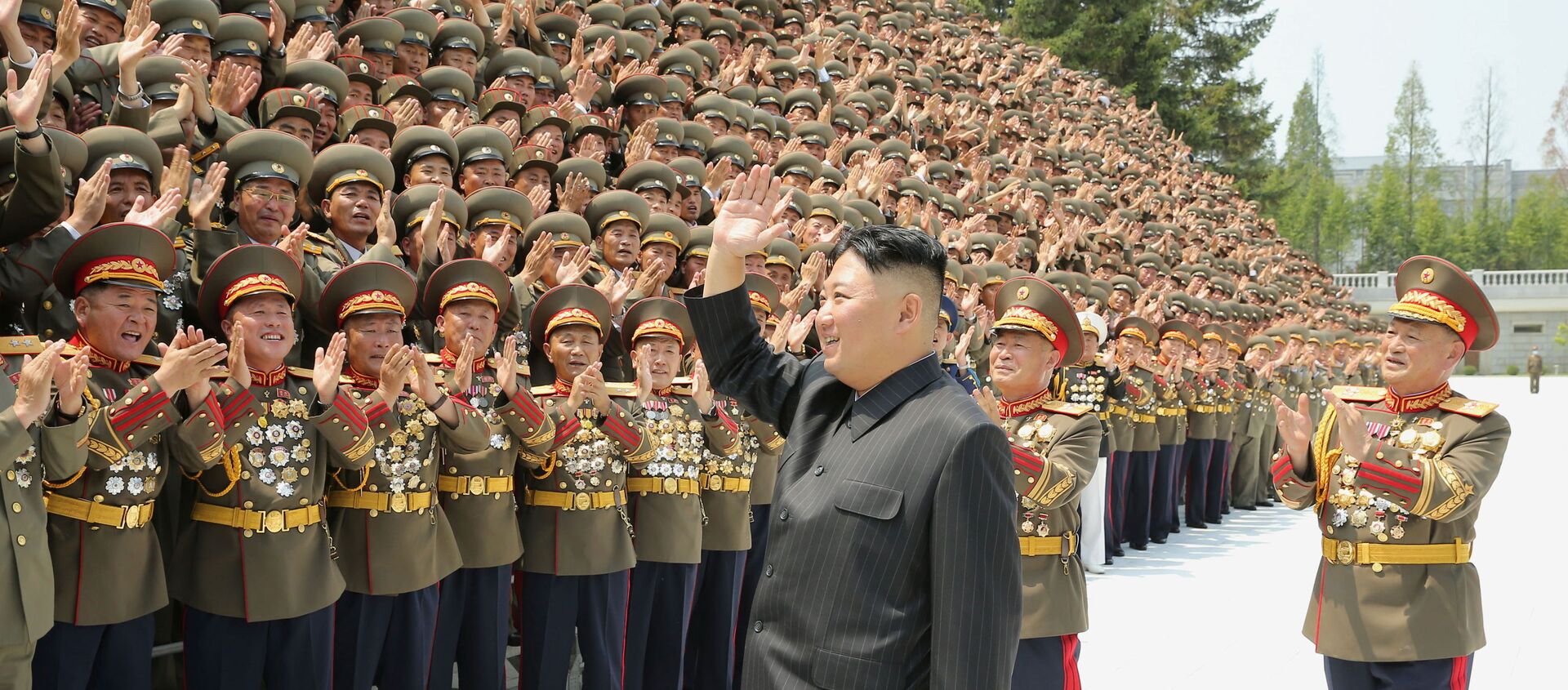‘Covid-Free’ North Korea Says No Thanks to Millions of Doses of China’s Sinovac Vaccine
10:38 GMT 03.09.2021 (Updated: 11:08 GMT 03.09.2021)

© AFP 2023 / KIM WON JIN
Subscribe
Pyongyang has long been known for its unique approach to the coronavirus, being one of the first nations in the world to completely close its borders to the outside world as a precautionary measure, and continuing to maintain since then that it had ‘zero’ reported cases of the disease.
North Korea has rejected some 3 million doses of China’s Sinovac coronavirus vaccine, and recommended that the jabs instead be directed to countries which have been hit harder by the pandemic, the United Nations Children’s Fund (UNICEF) has indicated.
The country’s health ministry was said to have “communicated that the 2.97 million Sinovac doses being offered to DPR Korea by COVAX may be relocated to severely affected countries in view of the limited global supply of Covid-19 vaccines and recurrent surge in some countries”, a UNICEF spokesperson explained.
UNICEF is the UN agency responsible for the management of the World Health Organization’s COVAX scheme. The latter is a multinational project designed to ensure that coronavirus vaccines are made available to countries which cannot afford to buy them abroad or develop and produce their own.
North Korea has promised to “continue to communicate” with COVAX regarding the potential delivery of vaccines “in the coming months,” the UNICEF spokesperson stressed.
According to WHO figures, North Korea continues to record zero cases of coronavirus infections. The global health watchdog said 37,291 persons were tested throughout the country over a ten-day period in mid-August, among them people being treated with influenza-like illness and severe acute respiratory infections, with no confirmed cases found using polymerase chain reaction (PCR) testing technology.
North Korea’s rejection of Sinovac vaccine follows the country’s reported move in July not to allow 1.9 million doses of AstraZeneca’s vaccine into the country. Institute for National Security Strategy, a Seoul-based think tank affiliated with South Korean intelligence, speculated that North Korean authorities were concerned over the severe side effects associated with AstraZeneca preparation, including severe blood clots in rare cases.
According to the think tank, Pyongyang has also asked questions about the effectiveness of China’s Sinovac vaccine – which is a traditional preparation using dead, or inactivated viruses, rather than the more sophisticated (but also less well researched) RNA and mRNA-based jabs. The vaccines offered by Pfizer and Moderna vaccines were also ruled out, according to the INSS, due to North Korea’s lack of cold chain storage facilities.
North Korea has reportedly questioned the efficacy of coronavirus vaccinations generally, with state media said to regularly report on cases of side effects from vaccines in countries and regions where mass vaccination campaigns have taken place, including the United States and Europe.
North Korea has a population of about 26 million, meaning that the parties of Sinovac and AstraZeneca vaccines it rejected would have only been enough to inoculate less than 20 percent of the country.
In a meeting of the ruling Korean Worker’s Party politburo on Thursday, North Korean leader Kim Jong-un urged officials to “bear in mind that tightening epidemic prevention is the task of paramount importance which must not be loosened even for a moment.”
According to the Korean Central News Agency, Kim “called for fully providing material and technical means necessary for strengthening epidemic prevention, enhancing the professional qualifications and roles of the officials in the field of epidemic prevention and further rounding off our style [of] epidemic prevention system.”
North Korea’s unique approach to handling the coronavirus, and its claims that it still has zero cases of the disease over a year and a half after the pandemic began, have irritated some of its strategic adversaries, including the United States, which accused Pyongyang of lying about its Covid-free status. North Korea’s contacts with the outside world were limited even before the health crisis, and the country became one of the first nations in the world to introduce tough inspection and quarantine measures, cancel all tourist visas, cut off flights and rail travel, and quarantine all workers coming home from abroad during the emergency’s first crucial months.
The anti-epidemic measures have impacted the Asian nation’s economy, however, with Kim admitting earlier this year that the coronavirus response had necessitated a “prolonged struggle for keeping afloat the overall economy and for providing food, clothing, and housing for the people” to enable the country to “cope” with “the unfavourable condition of the emergency anti-epidemic work.”



